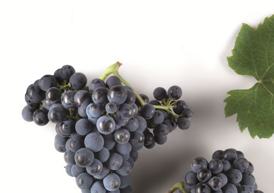He is one of the greatest names in international wine reviewing, with over 35 years' experience writing for publications such as Harpers, Decanter, The World of Fine Wine, Gourmet Traveller Wine and The Drinks Business. Today his reviews and influential reports can be enjoyed on his award-winning website timatkin.com. Also, his magnificent photos capturing the soul of wine and its people.
What really makes wine different and special compared with other kinds of drinks (and spirits)?
The best wines have a sense of place that is unique. The same is more or less true of certain spirits – whiskies for instance – but not in quite the same way. Wines reflect a given vintage, good, bad or mediocre, as well as a degree of human intervention. Spirits and beers don’t. In the end, the wines that excite me most are the ones that display what real estate agents call “location, location, location”.
You have enjoyed thousands of wines in your long career as a wine writer. Does the perfect wine exist or is it yet to be elaborated?
Some wine writers give hundreds of 100-point scores. I give very few. In fact, I’ve only ever given one (so far) in Rioja and that was to a white wine. So, yes, I do believe that perfection exists, in wine and in other things. It’s just very rare. It’s subjective of course – my perfection might not be yours – and that shouldn’t stop wineries trying to improve, but I think it’s important to recognise the qualities of something that is truly sublime.
Is it still possible to really surprise you with a wine?
Oh yes! I like to try as many different wines as possible, even though my main focus is on a handful of countries and regions that I’ve been writing about for a long time, where there are fewer surprises. I’ve just got back from a ten-day trip to Galicia, which is a place I find fascinating, and I was surprised on a daily basis. I kept discovering new red grape varieties!
The current general trend in the sector -including the wine press- focuses more and more on the vineyard, the terroir, and perhaps less on the work or ageing in the cellar. Will this tendency continue in the future or is it a transient trend?
Yes, it will, and I think that’s a good thing. It’s a platitude to say that “great wines are made in the vineyard” but that doesn’t mean it’s untrue. I think many wine drinkers are more and more interested in origin, or terroir if you like. This doesn’t mean that what happens in the cellar is unimportant. Indeed, it’s perfectly possible to ruin great grapes. But most great winemakers are doing their best to express place, or places in some cases.
How do you consider the current positioning of Spanish wine in comparison to the international top wine regions? Do we have a lot more work to do?
The quality has never been better, but I think that, with a few exceptions, Spanish wines are comparatively inexpensive and under-rated in the market place. Most fine wine consumers don’t see them as being at the same level as the top wines of Italy, France or parts of the New World. But that’s changing faster than at any time in my career. So if you like Spanish wines, make the most of the prices now. They will only increase…
Do consumers of your country recognise an increase in the quality and level of Spanish wines?
It depends on the consumer. I don’t want to be ageist – I’m no longer young myself – but older consumers tend to be a little less adventurous and open to new ideas. But the new generations of sommeliers, consumers and indeed wine writers often recognise how diverse and exciting Spain has become.
Is it difficult for a UK winelover to distinguish between Spanish regions, ageing classifications...?
I think the ageing terms themselves are pretty clear. The problem comes where consumers equate them with quality, when they are just a measure of how long a wine has spent in oak and bottle. They all know Rioja very well, and Ribera del Duero to a certain extent, as well as Rías Baixas, or rather Albariño, and Jerez. But there are so many other wines to discover. I see it as part of my mission to sing their praises.
Rioja wines are the undoubted Spanish references and sales leader in the UK. Are other wine regions still far away?
Rioja is certainly the best known Spanish fine wine region in the UK, but it doesn’t make all the best wines. And, let’s be honest, cheap Rioja can be a pretty disappointing. So, yes, I’d argue that a number of other regions make wines that are every bit as good. Bierzo, Priorat, Ribeira Sacra, Gredos and Ribera del Duero are just a few examples. Vive la difference, as they say in France.
The last question, how do you appreciate the trajectory of La Rioja Alta, S.A. and its evolution over the last decades?
La Rioja Alta, S.A. makes classic wines in a traditional style, and does it as well as anyone. The impression it gives is that not much changes from year to year, but that’s not true. Julio Saénz is a perfectionist and he’s always making small adjustments in the vineyard and winery. I’m a huge fan of what La Rioja Alta, S.A. does. Long may it continue to give us wine drinkers so much pleasure.






















